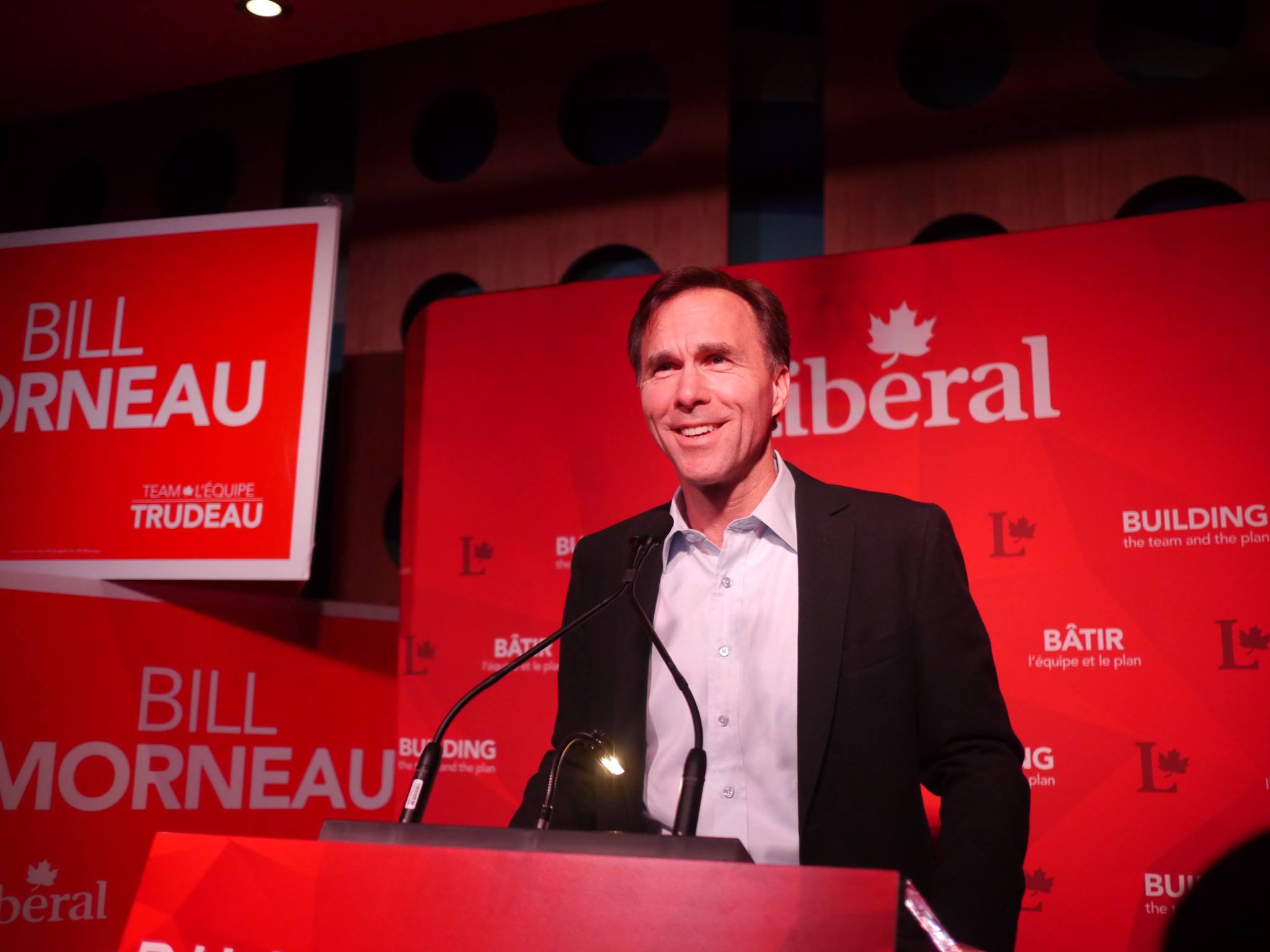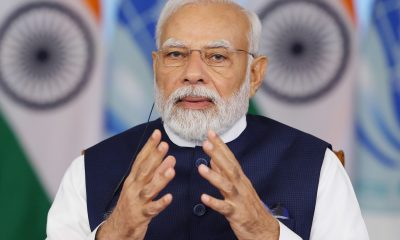Business and Economy
Economic concerns following Bill Morneau’s cross Canada, pre budget tour

Bill Morneau, Canada’s Minister of Finance
(Photo from Morneau’s official Facebook page)
OTTAWA—No matter where Bill Morneau has taken his pre-budget road show, the economic storm clouds have gathered overhead.
The federal finance minister’s cross-country tour to consult Canadians as he crafts his first budget has been overshadowed by the rapidly deteriorating economic situation.
On Wednesday, the rookie minister’s circuit took him to Canada’s financial centre: downtown Toronto.
But on top of focusing on the new Liberal government’s plans to help middle income Canadians and spur economic growth, Morneau has also had to explain what he’s called “considerable headwinds.”
And he has acknowledged they have “no quick, easy fixes.”
Canada’s commodity-heavy economy is suffering from a toxic combination of still-falling resources prices, mounting business and consumer pessimism and eroding fiscal conditions that are gnawing away at the government’s bottom line.
“The challenges that we face today are real,” Morneau told a business crowd earlier this week in Montreal.
In Toronto, he told reporters about the fiscal hurdles the Liberals found when they formed government. “The situation was more challenging than we expected,” Morneau said.
The obstacles are mostly tied to tumbling crude oil prices, a key determinant of government revenues and overall economic health.
Canada has been struggling since the late-2014 oil price shock, which forced the economy to contract over the first two quarters of 2015.
In late November, Morneau released a fall fiscal update that based its calculations on private-sector projections calling for oil to average US$54 a barrel in 2016. The prediction seemed optimistic at the time; oil was about US$40.
This week, crude prices slid to near US$30 and some analysts have warned it could fall to US$20.
“All in all, the message is that the outlook is much worse than what it was back in November,” said National Bank senior economist Krishen Rangasamy.
“I think this is a major, major impact.”
In a recent note to clients, Rangasamy pointed out that low oil prices have helped drive Canada’s terms of trade to their lowest mark in 12 years—and that’s before the most recent oil price slide is factored in. It’s even below where it was during the so-called “Great Recession” of 2009.
Terms of trade compare the prices a country pays for imports versus how much it receives for exports.
Falling terms of trade lead to lower government revenue growth, as measured by nominal gross domestic product, Rangasamy said.
His National Bank colleague, Warren Lovely, estimated in an “admittedly simplified scenario” that even a one per cent drop in nominal GDP could cost the government $8 billion a year.
Rangasamy said under current conditions nominal GDP could very well come in one per cent lower than forecasts. He expects to the Bank of Canada to downgrade its projections when it releases its monetary policy report next week, a move that would likely see the Finance Department lower its projections.
The drop in oil prices has also dragged down the dollar, pushing it to below 70 cents US—its lowest level since 2003.
But even as the low loonie drives up some consumer costs—like vacations abroad and supermarket prices—experts say that overall, it should help the economy, particularly when it comes to exporters.
On Tuesday, Morneau reminded reporters how Finance officials made adjustments in the fall fiscal update to brace the books for scenarios such as weaker than expected oil prices.
“And that looks like a prudent decision in hindsight,” he said.
In November, shortly after taking office, the Liberals said the books inherited from the Conservatives and the worsening economy would push the country billions of dollars deeper in the hole than they had anticipated during the election campaign.
The parliamentary budget office later issued forecasts that suggested the Liberals could be poised to churn out shortfalls of up to $15 billion a year once their costed, big-ticket election pledges were accounted for. In addition, the party has also made several uncosted promises.
Prime Minister Justin Trudeau vowed during the campaign to cap deficits at $10 billion in 2016-17 and 2017-18 unless the economic situation got radically worse.
Morneau has been using this week’s tour to try and reassure Canadians by repeating the government’s mantra: that it has a plan to jump-start economic growth.
To help the economy, he has mentioned the move to cut taxes for middle-income earners, a change offset in part by raising taxes on the highest earners. Morneau has also highlighted the Liberal plan to overhaul child benefits so they help more families.
The Liberals have also promised to create growth and jobs by spending billions in the coming years on infrastructure projects.
“We’ve already started on that plan,” Morneau said Wednesday.





















